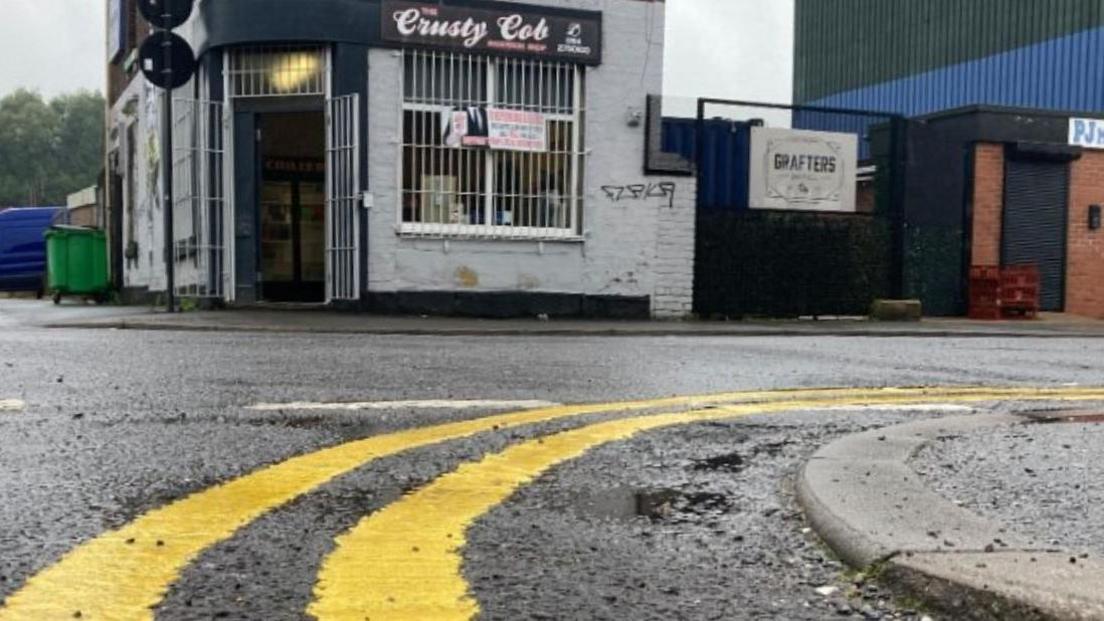Firms say parking changes threaten their futures
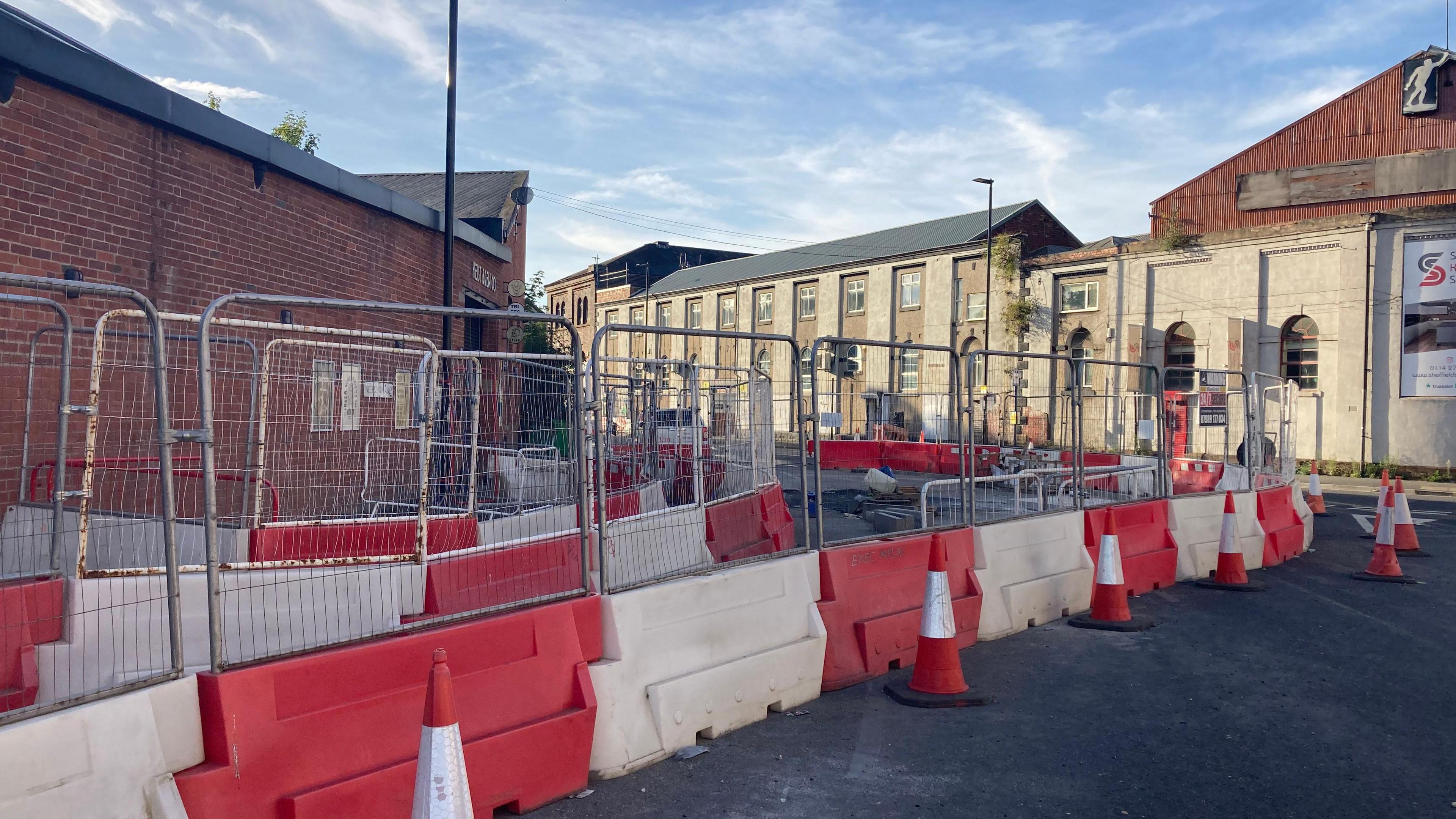
Roadworks in Neepsend, Sheffield
- Published
The councillor in charge of transport in Sheffield has refused to back down over parking changes businesses have said are threatening their livelihoods.
Firms in Kelham Island and Neepsend said new double yellow lines and parking zones meant customers struggled to find spaces to use when visiting businesses.
Cafe owner Bev McMahon said the local authority was on its way to doing what the pandemic and cost of living crisis couldn't - "killing" her business.
Ben Miskell, chair of the council's transport committee, said not addressing parking issues was "not the answer".
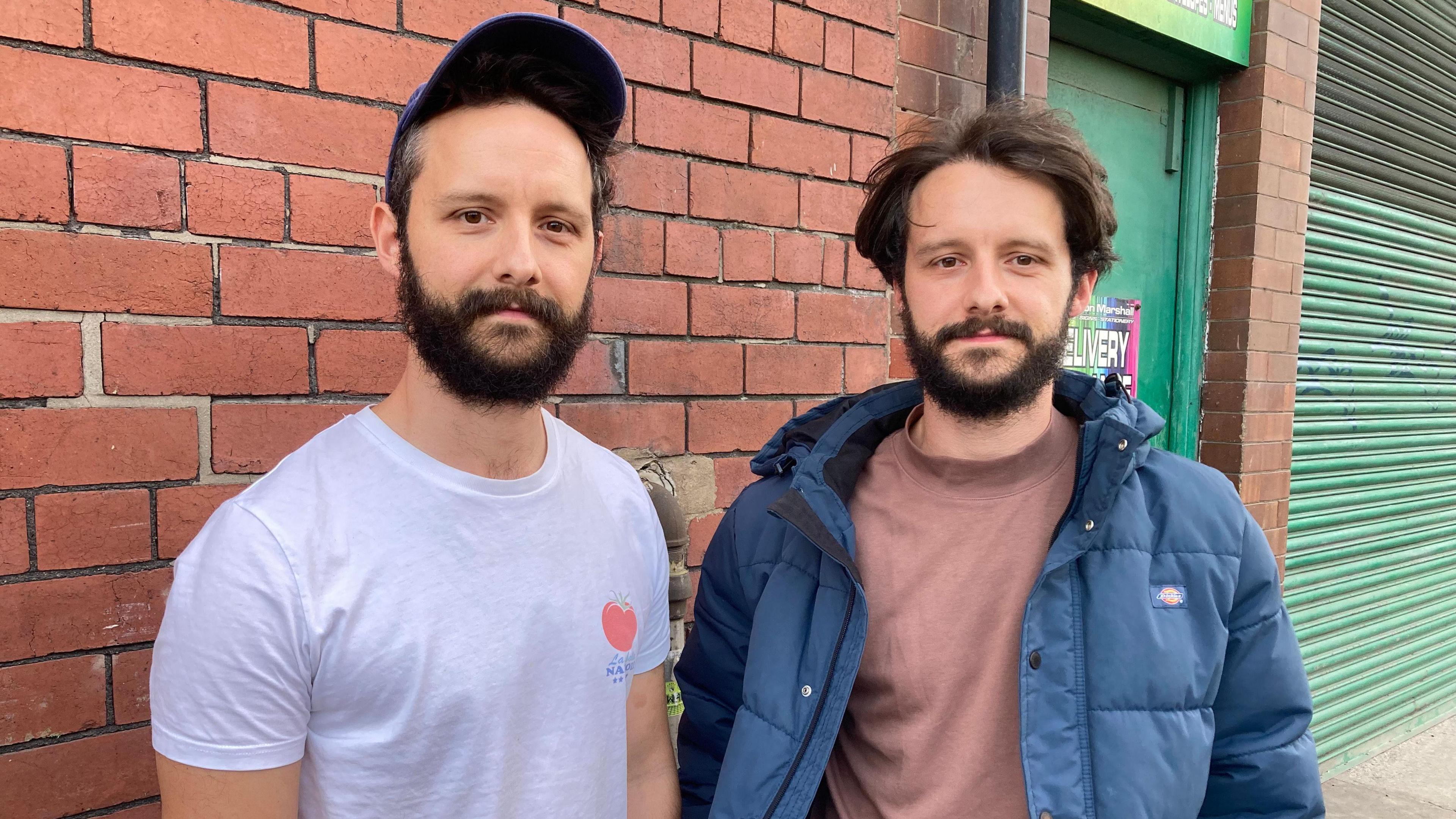
Neepsend Social Club owners Tom (left) and Ben Miller
More than 3,000 people have signed a petition which calls on the council to reverse the changes.
The alterations, which are due to be reviewed next year, are part of wider plans aimed at increasing the number of homes in the city centre.
During a meeting with the council and Sheffield Chamber of Commerce on Monday, traders warned some businesses could be forced to leave the area.
Tom and Ben Miller, directors of bar and food hall Neepsend Social Club, said since the changes were introduced in June they had seen sales drop by a third.
"There are a lot of independent businesses down here, none of us have deep pockets," they told the BBC.
"All it would mean is that those owners will have to move on and it will just become a corporate-ised area, because businesses with bigger pockets will move in."
Bev McMahon, owner of the Crusty Cob cafe, said the council's ambition to encourage car-free travel was not feasible for her.
"I can't physically fetch my stock on a bus, I need to be able to drive into the area and park outside my business," she said.
"I take my hat off to them [the council]. They have done what a recession, a global pandemic, a cost of living crisis didn't do: they are killing my business."
Miskell said concerns raised would be reflected on.
"Doing nothing about parking is not the answer," the councillor told BBC Radio Sheffield on Tuesday.
"In order to grow our economy, we need to sort out our transport, that means tackling congestion and I make no apologies for that."
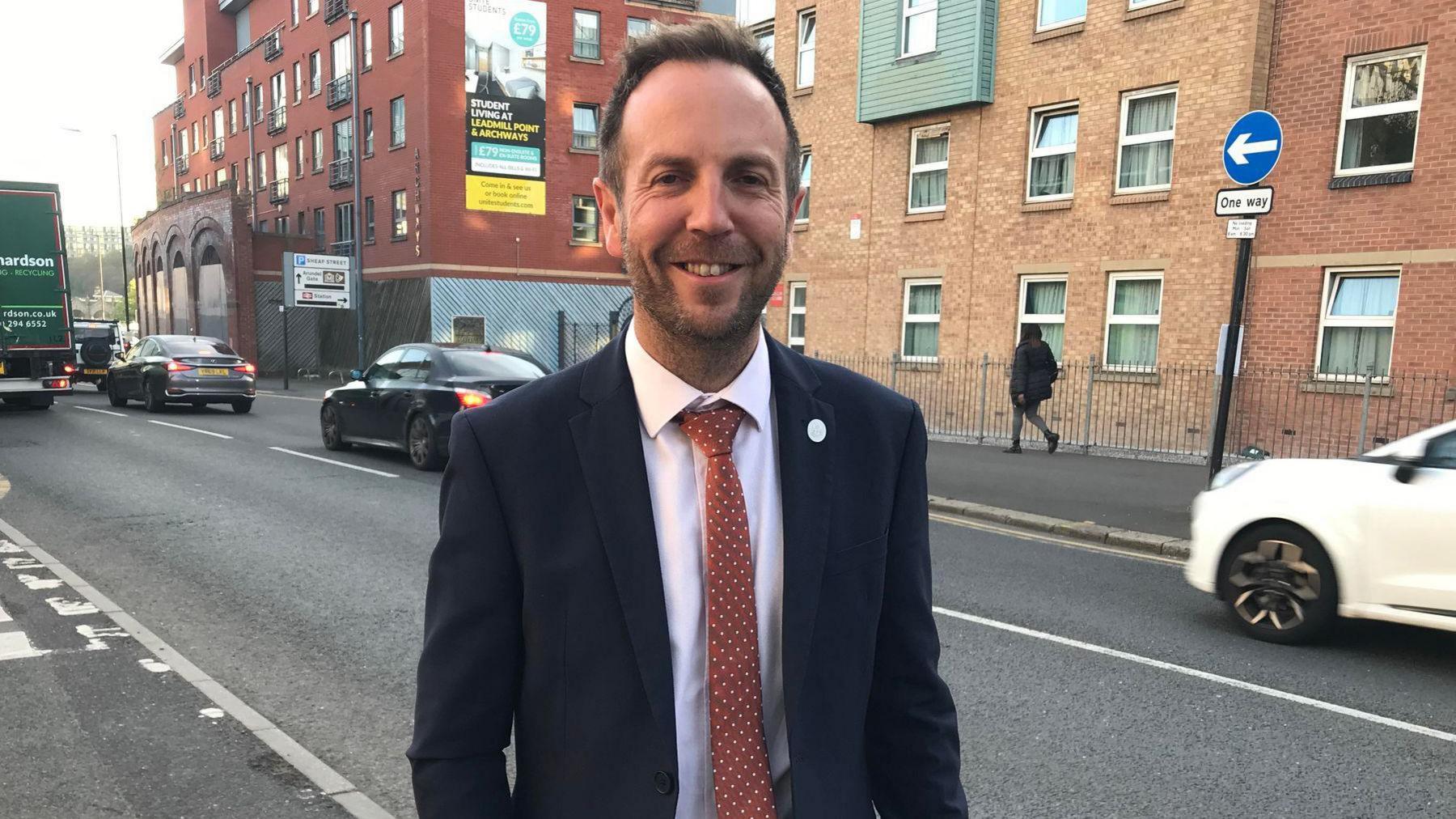
Ben Miskell, chair of the council's transport, regeneration and climate policy committee
When asked about the impact the work had on small businesses, he said: "I think it's important to say that case study evidence suggests investments in our public spaces like increased pedestrian crossings and making it easier to travel to our district centres can really increase footfall and trading."
Miskell also spoke about the plans to ease congestion on the A61 Chesterfield Road, which aim to encourage the use of public transport and improve safety for cyclists and pedestrians.
"At the moment our bus service is not good enough and we want to improve that," he said.
Listen to highlights from South Yorkshire on BBC Sounds, catch up with the latest episode of Look North or tell us a story you think we should be covering here, external.
Related topics
- Published16 September 2024
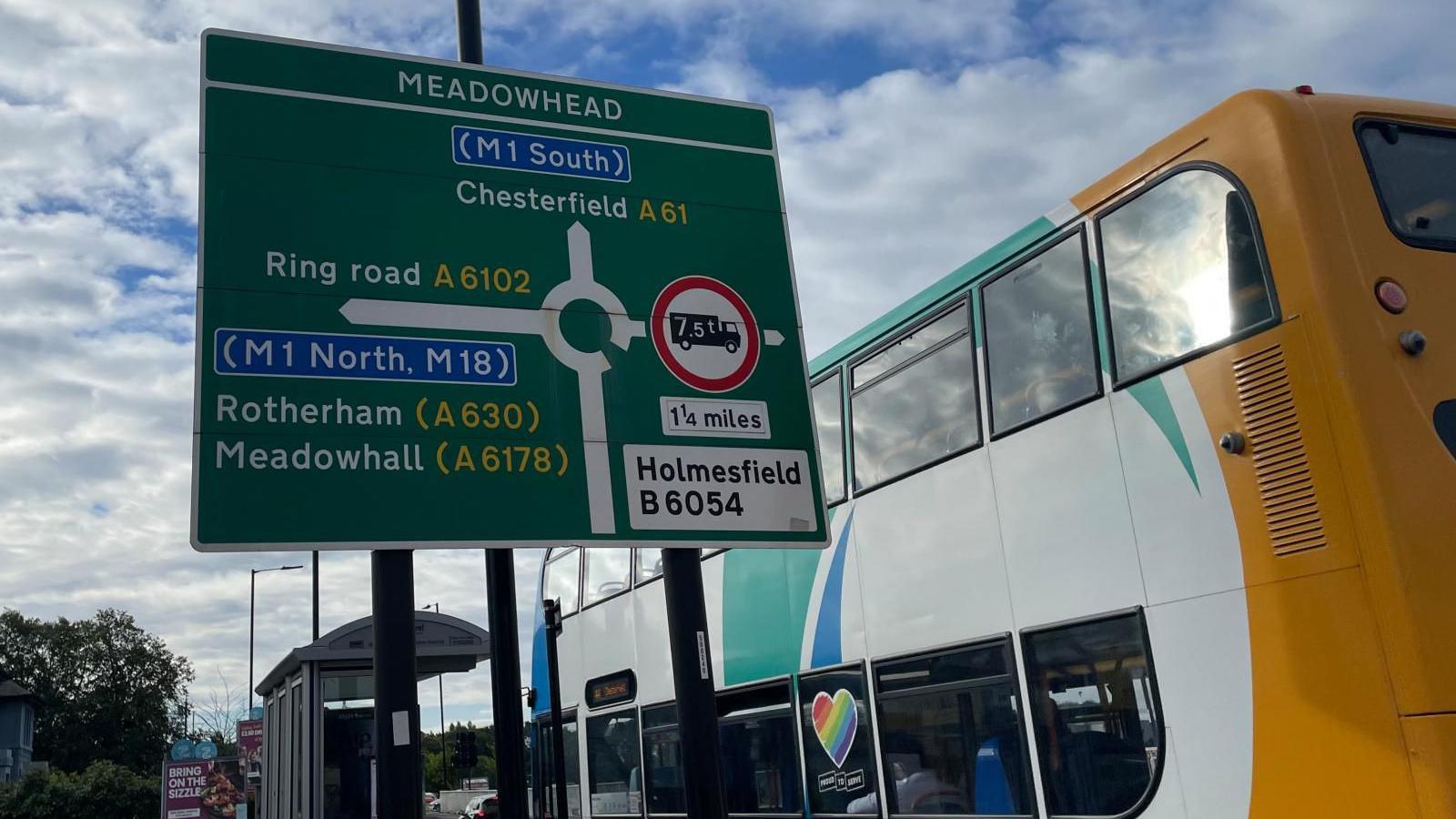
- Published10 July 2024
